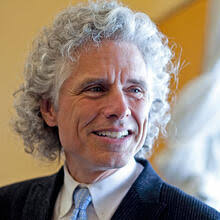We assume we can be in charge because our language easily lets us imagine it.
Rhetoricians like to say that language has its way with us. The phrase is meant to be a reminder that everyday language steers us to conclusions that usually promise more than we as individual agents can deliver. Word choice can easily create perceptions that can make the unlikely more likely, the improbable possible, the fantasy an outcome that will surely happen. We can tie a wish to an action verb, and we are off and running, creating expectations for circumstances that probably will not materialize. Who knew that simple verbs like “is” and “will” can trigger phantoms of deceit? The phrase “because I say so” is a pretty empty reason.
 What seems inescapable is that the ease of committing ourselves to the control of events verbally is easy but difficult in actual practice. This reality is something we’ve come to know all too well in any period of war, where action verbs suggest more control than we actually have. In his recent speech to military leaders, Defense Secretary Pete Hegseth asserted that “Either we’re ready to win or we are not,” overstating a single two-tailed option the belies the functions of any military in these complicated times. Hegseth’s language fit the warrior ethos” and “male standard” that he was peddling. But problems associated with foreign policy and its entanglements are highly variable. These words hardly hint at the peacekeeping that arguably remains the long-term burden of the American military. In addition, the Secretary must know that nearly 20 percent of our troops are women. As is so often the case, circumstances on the ground tend to get lost in the neon glow of rhetoric too dim to clearly see the Truth.
What seems inescapable is that the ease of committing ourselves to the control of events verbally is easy but difficult in actual practice. This reality is something we’ve come to know all too well in any period of war, where action verbs suggest more control than we actually have. In his recent speech to military leaders, Defense Secretary Pete Hegseth asserted that “Either we’re ready to win or we are not,” overstating a single two-tailed option the belies the functions of any military in these complicated times. Hegseth’s language fit the warrior ethos” and “male standard” that he was peddling. But problems associated with foreign policy and its entanglements are highly variable. These words hardly hint at the peacekeeping that arguably remains the long-term burden of the American military. In addition, the Secretary must know that nearly 20 percent of our troops are women. As is so often the case, circumstances on the ground tend to get lost in the neon glow of rhetoric too dim to clearly see the Truth.
Blame our overly deterministic language.
We construct the world as a web of causes and their presumed effects. It’s natural that we will place ourselves and our institutions in the driver’s seat. We assume we can be in charge because our language so easily lets us imagine it. Blame our overly deterministic language as well as the hubris it encourages. Both set up tight effects loops that seem clear on the page but elusive in life.
If we put individual verbs in a lineup, they look more or less innocent: words like affect, ready, make, destroy, are, causes, starts, produces, alters, stops, triggers, controls, contributes, changes, and so on. In the right company they are suggestive. But let them lose in the rhetoric of a leader determined to make his or her mark on the public stage, and they can be vacuous. This is the realm of the familiar idea of “unintended effects,” where what we intended and what actually happens are different. Verbs flatter us by making us active agents, but as President Trump has learned about Russia’s attacks on Ukraine, fantasies of power and control suggest more order in human affairs than usually exists.
 There is another interesting twist here. The use of verbs to project expected outcomes is ironically aggravated by our devotion to the scientific method. As Psychologist Steven Pinker has observed, we can’t do science without buying into the view that we can identify first causes. That’s fine for discovering the origins of a troublesome human disease. But even though this logic has spread through the culture, it cannot hold when we immerse ourselves in the infinite complexities of human conduct. Discovering as opposed to fantasizing the reasons and motivations of others is difficult. Add in large entities such as nations or tribes, and first causes of their conduct are often unknowable. And so strategic calculations based on efforts to influence or control behavior are bound to produce disappointment.
There is another interesting twist here. The use of verbs to project expected outcomes is ironically aggravated by our devotion to the scientific method. As Psychologist Steven Pinker has observed, we can’t do science without buying into the view that we can identify first causes. That’s fine for discovering the origins of a troublesome human disease. But even though this logic has spread through the culture, it cannot hold when we immerse ourselves in the infinite complexities of human conduct. Discovering as opposed to fantasizing the reasons and motivations of others is difficult. Add in large entities such as nations or tribes, and first causes of their conduct are often unknowable. And so strategic calculations based on efforts to influence or control behavior are bound to produce disappointment.
It’s a great paradox that we are so easily outgunned by the stunningly capricious nature of the human condition. Take it from someone who has spent a lifetime writing and teaching why people change their minds. We have models, theories and loads of experimental research. But making predictions about any specific instance is almost always another case of hope defeated by extenuating circumstances. We may be able to say what we want, giving eloquent expression to the goals we seek. Our verbs may sing their certainty. But forces we can’t predict are going to produce their own effects.


 In general, dullards think in binaries; trained experts will be far more interested in contextual variables.
In general, dullards think in binaries; trained experts will be far more interested in contextual variables. Gay missed the opportunity to make a clearer definitive statement against racism. But the presidents were not wrong to explicitly suggest the need for defining the contexts in which threats against others are spoken. There is a long tradition in the United States to treat overheated rhetoric against another group as unfortunate but mostly tolerated. We tolerate blather but not violent behavior. Courts in the country have rarely agreed on what constitutes “fighting words,” and whether they are legally actionable. In each case that has come before a federal court context mattered.
Gay missed the opportunity to make a clearer definitive statement against racism. But the presidents were not wrong to explicitly suggest the need for defining the contexts in which threats against others are spoken. There is a long tradition in the United States to treat overheated rhetoric against another group as unfortunate but mostly tolerated. We tolerate blather but not violent behavior. Courts in the country have rarely agreed on what constitutes “fighting words,” and whether they are legally actionable. In each case that has come before a federal court context mattered.